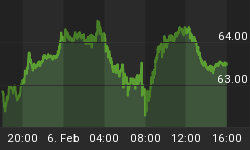As soon as Obama threw his hat into the presidential arena I warned that if he were to win the consequences for the US economy would be very grave. Time -- and a very short time at that -- has borne out this prediction. Rather than stimulate the economy I warned that his policies would -- if not reversed -- lead to economic stagnation. At best a situation where the rate of capital accumulation barely keeps abreast of population growth thereby preventing a significant rise in real wages. This, I argued, would be due to the massive increase in government misdirecting resources to consumption.
Entrepreneurship drives an economy and savings fuel it. These two forces working in tandem are what produce economic growth: not government spending or personal consumption. Any continuing rise in genuine prosperity is the product of these forces and not the cause, a simple fact that the great majority of politicians seem unable to grasp. (Then again, there a quite a few economists who are not much better.) Reducing the savings rate -- which is what a continuing increase in government spending does -- would greatly hinder entrepreneurial activity. (Onerous regulations have the same effect.) It could be argued that people would simply increase their rate of savings to offset rising taxes. This is a highly unlikely result that overlooks the fact that a point would be reached where saving would have to fall so that people could maintain what they consider to be a minimum level of consumption.
Hence a shrinking savings pool means that the number of projects, inventions and innovations that entrepreneurs can undertake will shrivel thus lowering the rate of capital accumulation and future living standards. This means that attempting to accelerate growth by encouraging consumer spending and government spending will have the reverse effect. This would not need explaining if it were not for the fact that thanks to Keynesianism mainstream economics no longer pays attention to the concepts of the capital structure and the structure of relative prices. Needless to say, capital theory also has no place in Keynesian thinking. Therefore it needs to be shown why the Keynesian approach is a dangerous fallacy.
Fortunately Friedrich von Hayek has already done the necessary work in this area. Building on the Austrian theory of capital he gave a detailed explanation of not only how spending works its way through the numerous stages of production but also how government spending policies can affect aggregate spending in such away as to even negate the benefits of increased savings and investment and thus keep the standard of living lower than it would otherwise be. (Profits, Interest and Investment, Augustus M. Kelley Publishers, 1975, pp. 199-263). To put it very simply indeed, the increased spending distorts the structure of relative prices and the capital structure by directing resources to the lower stages of production. This results in what the Austrians -- and the older economists -- call a shortening of the production structure. This would inevitable lead to a fall in real wages if left unchecked.
I believe this process is already underway. Since the Democrats took control of congress in 2007 federal spending has leapt by 25 per cent. (The atmosphere of uncertainty created by the Democrats' approach to regulations and taxes was bound also to aggravate an already severe economic environment.) While mainstream economists tend to focus on net investment it is gross investment (gross savings) that maintains the capital structure and hence the standard of living. Right now the situation is not looking very healthy.
Figures from the Bureau of Economic Analysis show that for 2009 gross private domestic investment was $1,515.7 billion compared with $1,957.3 billion in 2008 (2005 dollars) while the respective figures for net investment were $517 billion and $54.4 billion. (The gross investment figures reveal just how much it takes to maintain America's capital structure.) For net fixed investment the respective amounts were $556.7 billion and $169.3 billion. This is a huge drop. Moreover, while it is true that gross private domestic investment for the second quarter of 2010 reached $1,838.7 billion this should be compared with the peak figure of but $2,230 billion for 2006, a difference of 21 per cent. (The net investment figures have yet to be released.)
The evidence -- supported by sound economic theory -- strongly suggests that unless the Democrats' anti-growth policy of draining more and more resources from the private sector is reversed it will eventually have a severe detrimental effect on the American standard of living. For the life of me, I cannot see anything fair or equitable in such a policy. I believe that the only reason the Democrats felt comfortable in implementing it is because mainstream economics no longer gives any consideration to the formation of the capital structure and the vital importance of the structure of relative prices and those forces that shape it. In the mathematical world of the Krugmans there is no uncertainty, entrepreneurship, innovations, inventions, purposeful human action, capital or even time. There are only bloodless aggregates and simultaneous equations all of which are completely divorced from economic reality.
I fear things could get much worse before they get better.















